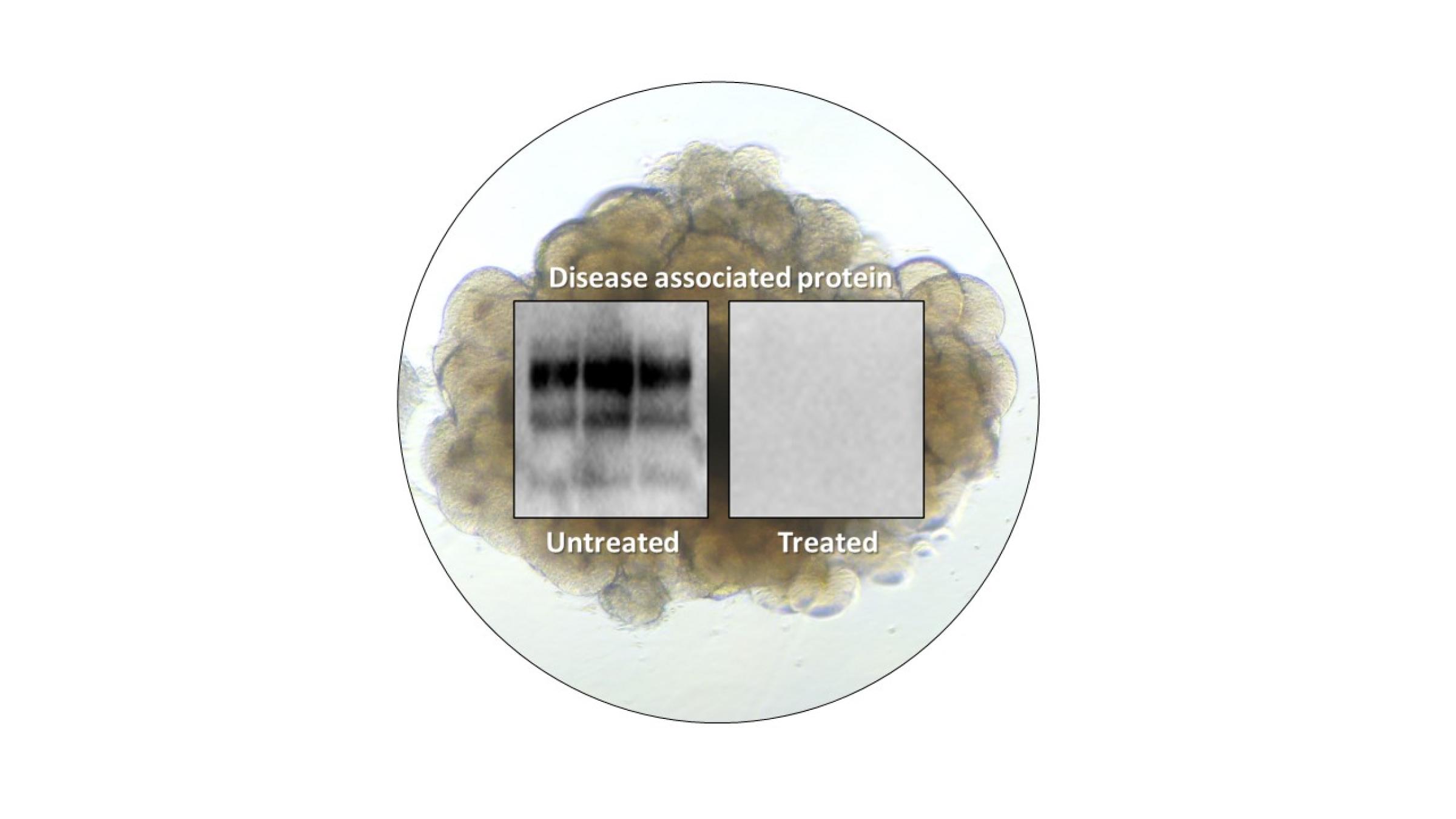Early Disease Diagnosis
Treatment of prion disease in people would be greatly facilitated by early disease diagnosis. RML scientists have developed a rapid and ultra-sensitive diagnostic test for prions called the Real Time-Quaking Induced Conversion (RT-QuIC) assay. This assay uses cell-free prion protein conversion reactions to amplify otherwise undetectable levels of prions to the point where they can be easily detected. It is being used at multiple facilities throughout the world to diagnose CJD. RML scientists also are working to adapt the RT-QuIC assay to detect the proteins that cause Alzheimer’s disease, Parkinson’s disease, dementia with Lewy bodies, and other neurological diseases involving misshapen proteins.
Treatment Research
There are no known ways to cure prion diseases but RML scientists are working to develop treatments. Using both cell-free and cell-based assays, NIAID researchers have tested thousands of compounds and identified hundreds of molecules that inhibit the formation of the abnormal form of prion protein. Further testing of the most potent of these inhibitors has revealed several that can prolong the lives of rodents if treatments begin soon after infection.
Antisense Oligonucleotides (ASOs)
New research at RML has shown that synthetic compounds called antisense oligonucleotides (ASOs) can be targeted to stop production of normal prion protein without adverse side effects. In one study, RML scientists and colleagues found that ASOs significantly delayed the onset of prion disease in mice by preventing the production of normal prion protein. Work in this area is proceeding with NIAID scientists collaborating with other groups on human studies looking for simple routes to inject ASOs and to determine dosage and treatment schedules.
Antibodies and Short Synthetic Protein Molecules
RML researchers also have identified antibodies and short synthetic protein molecules (fragments of prion protein) that can block the conversion of normal prion protein to the abnormal form. If successful, these investigations will lead to safe and effective methods to prevent prion infections as well as therapies that work in either the pre-symptomatic or symptomatic phases of disease.
Hypochlorous Acid
NIAID researchers at RML have discovered that a chemical called hypochlorous acid, which is used to kill bacteria and viruses, also can kill prions. Hypochlorous acid is not toxic to humans and may therefore be useful in hospitals as a disinfectant for prions.



